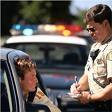Traffic ticket surcharge is lousy public policy
February 5, 2010
The Texas program of slapping state surcharges on driver violations is bad public policy in so many ways it's hard to know where to start.
Written by Editorial, The Dallas Morning News

The Texas program of slapping state surcharges on driver violations is bad public policy in so many ways it's hard to know where to start.
The embarrassing evidence: More than a million Texans have had their licenses suspended for running afoul of this ill-conceived money-making scheme.
The root of the problem was the Legislature's scramble for cash in 2003, when lawmakers decided to tack recurring annual fees on top of court-assessed fines for driving infractions.
Those surcharges were supposed to infuse trauma centers with money and help build roads, while penalizing lawbreakers. But hospitals have seen no windfall, and most of the targeted violators have only gotten deeper in the hole.
Ticketed drivers typically haven't known about the add-on charges until notice arrives in the mail. Traffic cops didn't tell them. City and county courts didn't tell them. That wasn't their job.
A violator might have settled a fine assessed in municipal court and walked away with a receipt that said "paid in full." But that settled things up only to a point. A surprise would arrive later in the mail saying the state wanted some, too. Never mind any judicial discretion that might conclude that only a nominal fine was in order.
If the first big mistake was trying to turn the legal system into a cash machine, the second was the choice of bill collector: the Department of Public Safety. The DPS should concentrate on patrolling highways, inspecting trucks, solving crimes and issuing driver's licenses.
But the department ended up with the job of notifying lawbreakers of surcharges, which last three years on violations ranging from driving while intoxicated to driving without a license or insurance. A buildup of points triggers surcharges, too. Amounts range from a few hundred to several thousand dollars.
Of the 1.9 million Texas drivers who have received surcharge notices from the state, 1.2 million have not paid, according to figures compiled by Dallas Morning News reporter Terrence Stutz. That has meant automatic suspension of their licenses.
The DPS has outsourced the bill collections to a private company, but that hasn't done anything to keep the list of debtors from mushrooming.
State lawmakers are not oblivious to this mess, conceding that many working people have gotten behind because they can't afford fixed, add-on fines and, without a license to drive, lose legal means to get to jobs.
Lawmakers have pushed the DPS commission to develop an amnesty and incentive plan to clear the backlog of debts. New rules were adopted in 2008 and updated last year, but they haven't been implemented. Officials blame a balky new driver's license computer system.
Public safety commissioners may take another crack at improving the surcharge program at their Feb. 18 meeting. The focus will be indigent debtors, but that should be only a start. They should aim all the technological firepower possible at finally implementing their own rules on offering incentives to all debtors to clear their names.
Then lawmakers need to come back next year and pull the plug on this embarrassment.
![]()
![]()
Related Stories
![]()
Fair Use Notice
This site contains copyrighted material the use of which has not always been specifically authorized by the copyright owner. We are making such material available in our efforts to advance understanding of environmental, political, human rights, economic, democracy, scientific, and social justice issues, etc. We believe this constitutes a "fair use" of any such copyrighted material as provided for in section 107 of the US Copyright Law. In accordance with Title 17 U.S.C. Section 107, the material on this site is distributed without profit to those who have expressed a prior interest in receiving the included information for research and educational purposes. For more information go to: http://www.law.cornell.edu/uscode/17/107.shtml. If you wish to use copyrighted material from this site for purposes of your own that go beyond "fair use", you must obtain permission from the copyright owner.